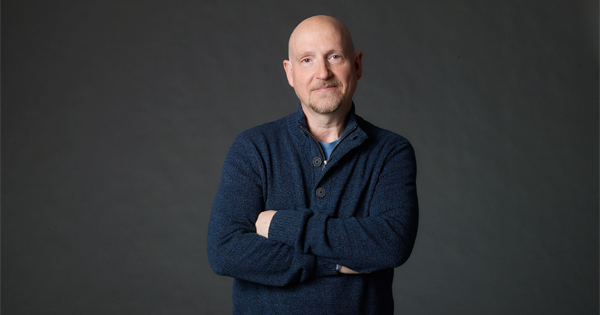Advertisement
In December 2010, Michael Singer mentioned to his doctor, “on a whim,” about the lump he’d discovered underneath his left nipple.
The doctor didn’t want to take any chances, so he sent Singer in for a surgical biopsy.
Just five days later, Singer was diagnosed with stage 2 breast cancer.
Singer almost didn’t believe his doctor, “I thought, ‘No way — men don’t get breast cancer.’ What in the world is he talking about?”
Breast cancer, though predominantly associated with women, is an “equal opportunity” killer. In fact, 2,600 men are diagnosed with breast cancer each year, and 440 of them don’t receive the news until it’s too late for them to be treated.
After Singer’s diagnosis, he was “embarrassed to talk about [it], except for telling [his] wife, Patty.” Singer only told his friends half-truths.
“I told everyone else that I had chest cancer because I just couldn’t go there with breast cancer. I felt like a freak. I felt extremely isolated,” he explained.
Thankfully, Singer’s cancer was easily removed in a mastectomy procedure, and he was soon able to avoid talking about his experience.
A year and a half after Singer’s mastectomy, however, he happened to flip to a TV show about male breast cancer survivors. One of the featured men, Bret Miller, had even founded the Male Breast Cancer Coalition, a nonprofit organization dedicated to raising awareness about male breast cancer patients.

From that moment, Singer knew he could no longer idly stand by, “After I found out about this group, there was no stopping me. I became an activist because I want to help change some men’s lives.”
Singer has since become a vocal activist about male breast cancer and travels to high schools, organizations, and rallies all over the country to raise awareness. He even lifts up his own shirt to demonstrate how men should check their own breasts for signs of cancer.
Even though Singer has been cleared by his doctor of cancer, he still goes in every year to get checked.
“Breast cancer doesn’t discriminate…” Singer said, “I’m now trying to be the voice of guys who don’t want to talk about it or guys who died and can’t talk about it. I want to be that voice that helps change how America looks at men and breast cancer.”




